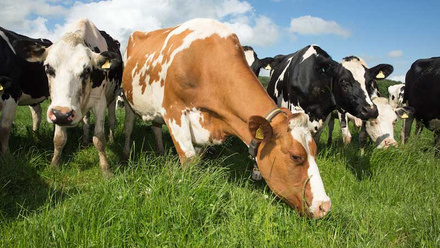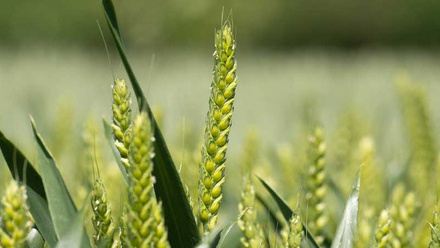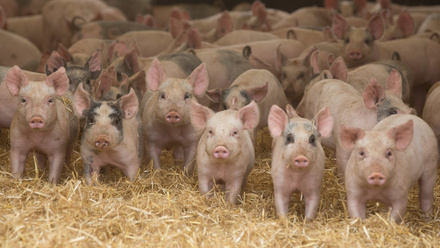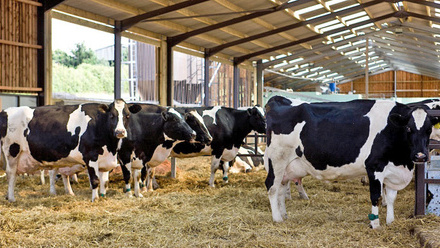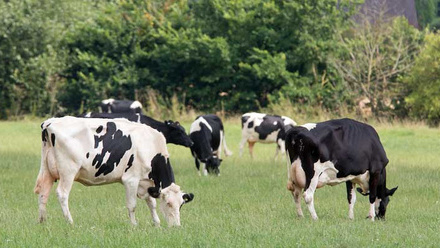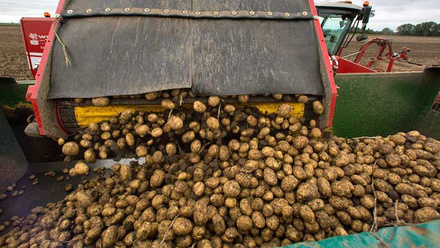Value of Animal, Crop Nutrition and Agronomy Advisers - Defra Test and Trial conclusions
Publish date
01 03 2022
Background
This project is part of the Tests and Trials programme that aims to support the Department for Environment, Food and Rural Affairs (Defra) in developing the new Environmental Land Management scheme (ELMs) by providing evidence of existing on-farm interactions between farmers and advisers that will enable them to answer their specific Advice and Guidance policy questions.
The test examines the process by which established trusted relationships between farmer and adviser(s) have the potential to affect the level of advice and guidance take-up to help support the delivery of public goods through ELM schemes.
Twelve farmer-adviser case study interviews provide the primary data for the test and three focus groups, comprising a total of 28 farmers, provided the required degree of monitoring and evaluation of the test in order to validate the findings.
Results
Policy Questions
What expert support will participants require to help them plan and record which public goods they will deliver?
- Many farmers do not have the time, inclination or sufficient familiarity with the processes involved to do their own agri-environment scheme applications.
- Advisers are often central to decision-making on farm for existing agri-environment schemes. In many cases:
- Undertaking all planning and application processes; and
- Advising on the implementation of agreements
- Advisers can be integral to the running of the farm and play a key role in day-to-day running, long-term planning and major investment decisions.
When should this be delivered?
- Wider information about ELMS, its components and what it will entail is needed now as farmers consider their future options.
- Advisers are proactive in identifying opportunities for farmers well in advance of making applications to agri-environment schemes.
- Farmers already in existing agri-environment schemes are using their advisers to ensure compliance, enhance delivery and the outcomes from these agreements.
- Advisers are involved throughout the process of delivering environmental benefits alongside productive farm businesses.
How many accredited experts will we require?
- Farms covered by the case studies relied heavily on external advisers.
- Advisers from outside a farmer's trusted circle are regularly viewed with scepticism, unless they have been recommended by someone they trust.
- Upskilling, equipping and expanding the existing trusted advisory community with new accreditation opportunities for environmental specialisms, rather than creating new advisory bodies, would help farmers better deliver environmental benefits.
Should advice be mandatory? How much free advice should we give?
- Farmers involved in the case studies were happy to take advice from long-term advisers who were viewed as integral to running the farm.
- A mandate to take advice is unlikely to be well received, even though the cost and benefit should be outweighed by the investment.
- There is a concern that free advice wouldn’t go much beyond basic farm compliance and not explore a farm’s full potential.
How will we ensure the advisers have the skills and knowledge they need?
- In this specific study some farmers and all advisers had FAR, BASIS or FACTS, including those with additional environmental competencies and qualifications (e.g. in biodiversity, soils and water etc.) and were on the existing professional registers for these organisations.
- All advisers, new and existing, will need to build on their skill base by obtaining specific qualifications, or CPD focussing on the delivery of environmental benefits, to ensure they have up-to-date technical information and to maintain their place on their professional register and the newly launched BASIS Environmental Register.
- There would appear to be no reason why Defra wouldn’t use the existing and expanding accredited adviser network as one of the ways to disseminate its policy messages.
- Where there is mutual trust between advisers e.g. between communities on professional registers or with Catchment Sensitive Farming advisers, combinations of advice can work well and add value to the farm business and environmentally.
Conclusions
All the farmers engaged in this test – whether as individuals or in the focus groups – reported that until information and clarity is available on the new schemes details they have limited ability to plan for ELMS.
However, there was a clear concensus when it came to the role of advisers, in their on-farm activities and the value of their professional training and competence:
- The vast majority of farmers have long-term relationships with advisers of some sort or can identify organisations they trust to advise them. They will use this network to advise them on all aspects of ELMS from planning through to recording the public goods they’ve delivered.
- Trust is a major issue and there is distrust of advisers external to their business operations, partly because of a perceived lack of general or specific knowledge of farming. An influx of advisers without this farm-based knowledge will not help farmers deliver ELMS.
- Farmers are confident that their current channels of advice will quickly grasp the details of ELMS – when it becomes available - and help them to plan and implement aspects that will benefit their farm business and provide the environmental goods hand-in-hand.
- Training, CPD and skills registration (through accreditation bodies such as BASIS, FACTS, FAR) are embedded in the industry and widely acknowledged by farmers who believe that these mechanisms will be used to bring their advisers and them up to speed on ELMS and future environmental management opportunities.
Introduction
This test examines the expert support and advice available from the established relationships farmers have with practicing advisers who are proficient in the delivery of crop and animal nutrition and agronomy advice and how this may be used to improve the delivery and enhancement of environmental benefits on farm.
The primary data collection for the test was through the reporting of twelve case study interviews held with a farmer and their adviser that outlined the role of the adviser and the activities they are involved with on each of the farms.
AIC sought support from its 250 member companies – part of the wider community of approximately 5,000 technical advisers offering advice in crop and animal nutrition and agronomy – in selecting the twelve professional advisers and their farmer clients.
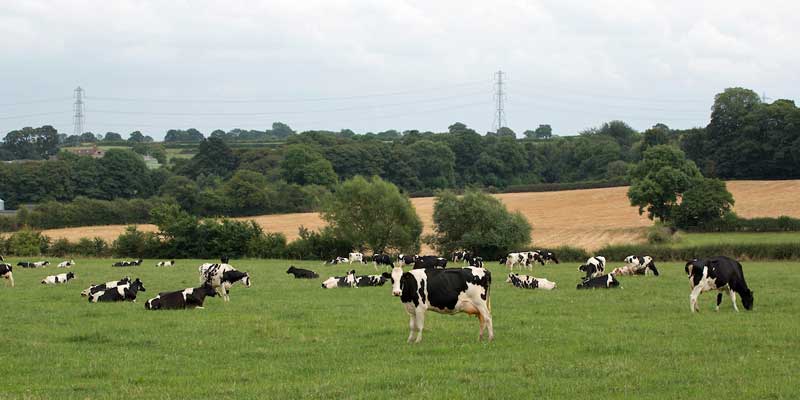
We were mindful of the need for a diverse range of farm types and geographical spread in selecting a sample as representative as possible of the farming population.
The case study interviews took a semi-structured format with a standardised series of questions having been put to the farmer and adviser designed to reflect the farming system, approach to advice and delivery of environmental benefits, as well as being tailored to assist in answering Defra’s policy questions in respect of Advice and Guidance.
As well as looking at current and possible future activities and practice, some of the questions sought to explore how activities beneficial for the environment would have been pursued on farms had guidance not been available or why they now pay for advice in this area.
The interviews were led by a communications consultant, Peter Crowe of Peter Crowe Communications. His skills were seen as key in teasing out this type of information from the farmer and adviser and also to ensure the questioning through the interview was consistent and objective.
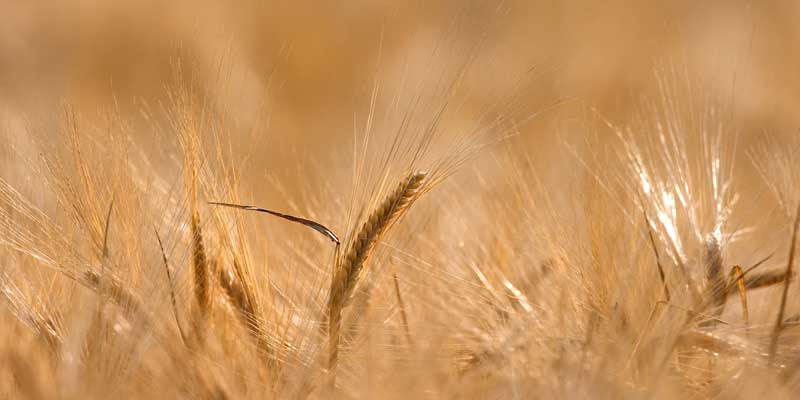
The 12 case studies were originally planned to be undertaken between March and December 2020.
However, the onset of COVID and the decision to continue, where possible, with face-to-face on-farm interviews, as well as finding time in the farming calendar, has meant that the case studies were undertaken between September 2020 and February 2022.
Having completed the case studies, three focus groups consisting of a total of 28 farmers were convened by Jan England of England Marketing to provide further monitoring and evaluation of the test.
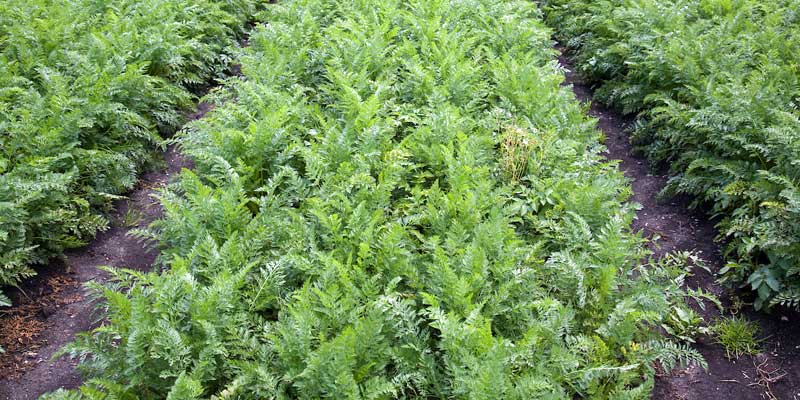
Each of the groups looked in detail at four of the case studies that were most relevant to the make-up of the group to assess how representative of their own on farm experiences they were.
The wider findings of the case studies were also presented to each group and comment sought on how well these reflected individual’s own experiences.
Findings
Environmental benefits on farm – the current situation
Farmers see their primary job as producing food. They want to do this in a way that is sustainable and gives them recognition for their role as farmers and landowners in providing environmental goods but any environmental scheme or delivery of environmental benefits should not lose sight of the fundamental point of farming as an integral part of the environment.
Having said that, farmers are already doing a lot to improve their environmental impact and sustainability performance, through such things as nutrient management planning and livestock diet formulation.
They also maintain and improve existing environmental habitat areas and features on their land, such as tree planting, ditching, hedge management etc.
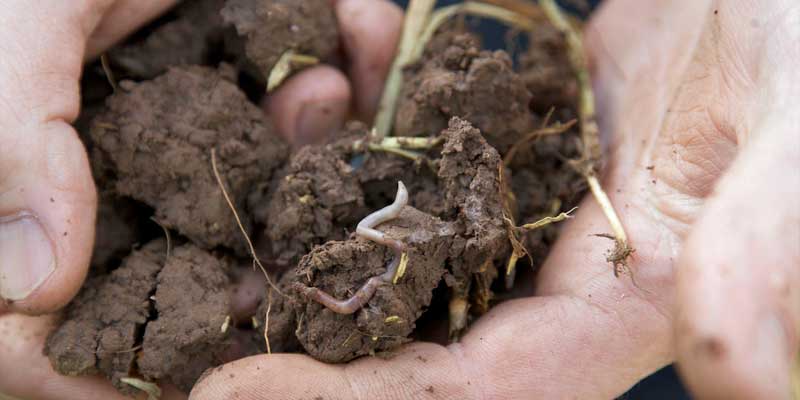
Both aspects are often undertaken outside agri-environment schemes and, therefore, in many cases are not recognised or rewarded.
Farmers are happy to operate in this manner not as a result of the bureaucratic and punitive experiences of those who are currently, or have previously been in, agri-environment schemes, particularly the early iterations of Countryside Stewardship.
If ELMS rewards activities which farmers are already doing to enhance the environment, but without rigid time constraints, farmers would welcome this.
A number of farms visited have a high percentage of land that is productive and profitable.
Changing the use of this land with high levels of production capability does not make sense from the point of view of national food security, and even if it did the rewards would have to be prohibitively high to persuade farmers not to farm on very good quality soils and land capable of sustaining production.
On the other hand, some farms definitely have areas that are marginal, or which cannot be cultivated and can be successfully used for delivering environmental benefits.
There is a need to view environmental benefits in field and in the surrounding habitat in a more integrated way and for future incentive payments to be balanced accordingly.
Adopting practices that increase farming efficiency and the better management of the resources available on-farm and those brought in, almost invariably improves the environmental impact of farming and, in the case of livestock farming, the health and welfare of the animals, with environmental benefits being delivered alongside productive farm businesses.
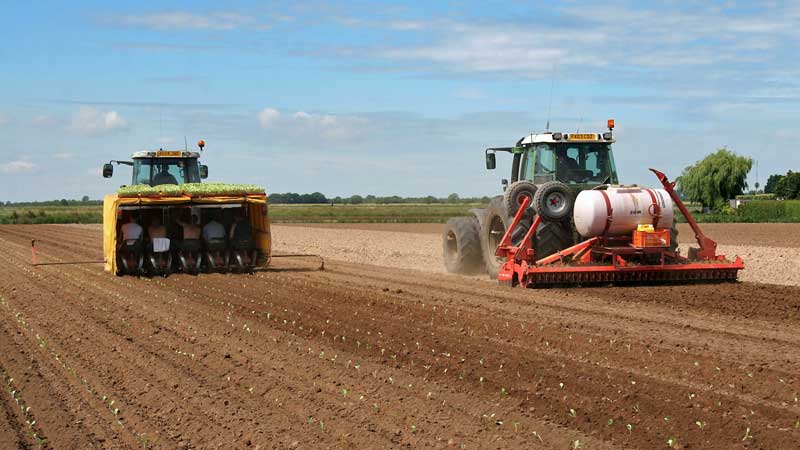
Every farm is different and location and soil types – among other factors – make a big difference as to the farming practices which can be used on them. Relatively recent changes in cultivation methods such as min-till and direct drilling can help to reduce environmental impact but are simply not practical on some farms.
Equally soils on some farms are underproductive with yields limited by lime and nutrient imbalance which when corrected as part of a well-thought-out and robust nutrient management plan, can enhance yields without adding significant risk to the environment.
There can also be additional environmental benefits with fewer nutrients being wasted as a result of correcting the soil imbalance.
No one size fits all – it is about putting the balance back.
What expert support will participants require to help them plan and record which public goods (environmental benefits) they will deliver?
Expert support is often necessary and is viewed as critical to maximise the success of ELMS.
Many farmers do not have the time, inclination or sufficient familiarity with the processes involved to do their own applications without help and are unwilling to engage with the details on these schemes.
For many the level of knowledge needed, the move away from longstanding farming practice and confidence in environmental options delivering sufficient return on investment is seen as limiting factors/barriers to delivering environmental benefits.
However, the case studies do indicate that a support network in the form of animal or crop nutrition and agronomy advisers, as a key part of farm advice community, is already in place in most cases.
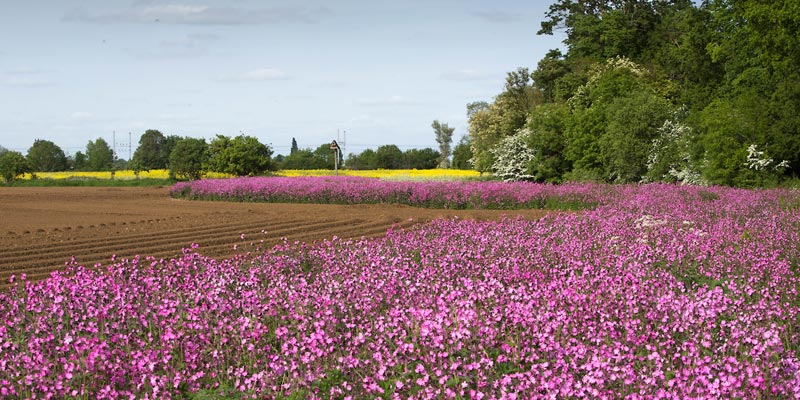
These advisers work on and bring experiences from many other farms and share their knowledge to deliver the best outcomes for that farm.
Some also collaborate with other farm advisers, such as with vets or with wildlife/catchment advisers.
The case studies show that professionally qualified advisers on crop and animal nutrition and agronomy and those specifically trained to offer a portfolio of environmental advice and services are central to decision-making on both the productive and less productive parts of the farm through existing agri-environment schemes.
In many cases, advisers undertake all the planning and application processes, as well as advice on the implementation of agreements.
On the majority of the farms visited, the crop and animal nutrition and agronomy advisers were integral to the running of the farm and played a central role including day-to-day running, long-term planning and major investment decisions.
These professional advisers are also central to decision-making on environmental activity, animal performance, and nutrient and soil management.
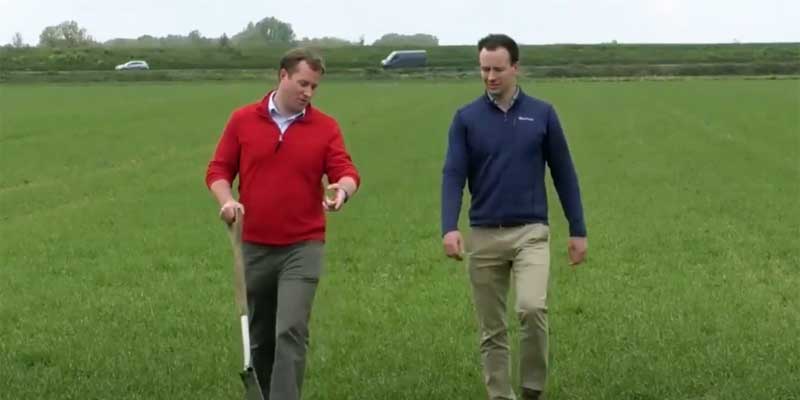
They provide services such as diet formulation, soil sampling and mapping and advice on improvements in crop health, soil quality and organic matter, with the aim of making changes to farming efficiencies and therefore emissions reductions (for air and water quality and for Net Zero).
Many of the nation’s environmental targets and specifically the changes required by agriculture, will in part, be delivered by simply using farm inputs and resources to best effect.
It is evident that an established relationship between farmer and adviser gives rise to a greater uptake of advice and implementation of measures aimed towards the delivery of environmental benefits with nearly, if not all advice, being acted upon by farmers.
Also important is specific farm knowledge, rather than just knowledge of the local area around a farm, as this has been shown to be critical to the development of robust farm plans due to the understanding of the potential for farm operations, conditions and rotations to be changed.
This knowledge defines the quality of the plan and in turn, optimises the success derived from the plan.
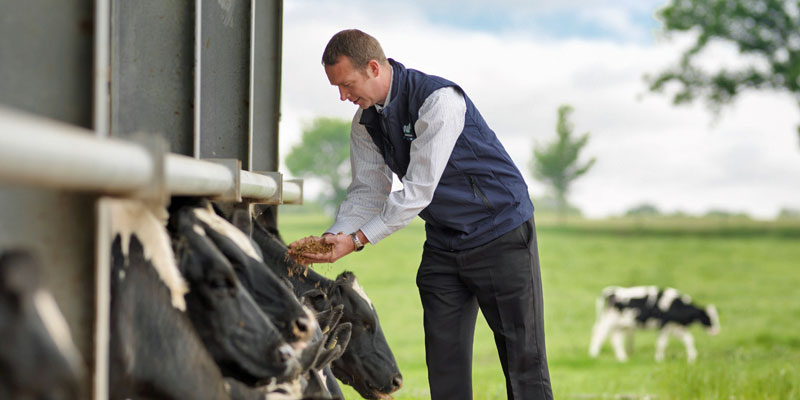
Land Management Plans would work well to integrate the delivery of environmental benefits into wider farm plans which currently focus on maximising cropping and or livestock performance, to ensure that there is a common direction of travel and to avoid unintended consequences that may be brought about by poorly planned environmental activities.
Data collection and recording to assess performance is an important part of farming.
Many farmers currently use automated systems provided through their adviser to track, for example, livestock performance or crop yield and to extrapolate the benefits for carbon, ammonia reduction etc.
It was also apparent that the recording of environmental benefits, whether that be nutrient management practices to allow precision applications or animal feeding, or tagging photographs showing areas of woodland on farms, is already being integrated into these systems.
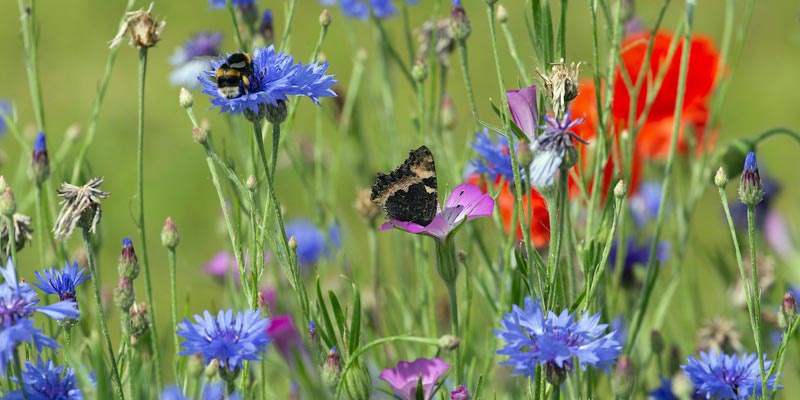
The regular presence on farm of advisers makes them well-placed to record and or substantiate the delivery of environmental benefits.
Similarly, an adviser’s compliance with a professional code of practice through their accreditation may allow Defra to provide farmers who work with advisers in delivering environmental benefits through a degree of earned recognition against the requirements of the scheme going forward.
This already happens with farm assurance schemes.
When should this be delivered?
Wider information about ELMS, its components and what it will entail is needed now as farmers consider their future options. Many are signing up to Mid-Tier Countryside Stewardship as a ‘transition’ into ELMS.
Conversely, some are not entering such schemes for fear of tying themselves into one thing and subsequently missing out on something else that may prove more beneficial for their farming business.
Farmers are uncertain about what ELMS means and feel that there is a lack of communication on what will happen in the future.
They do, however, believe that advisers are a key channel of information and advice on ELMS.
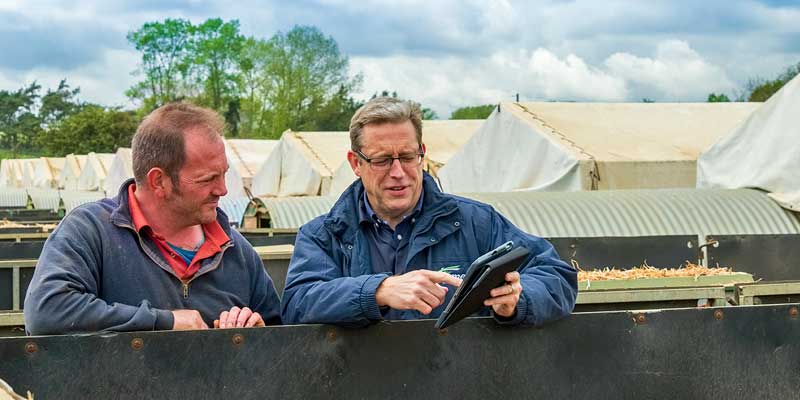
Advisers are willing to provide this advice, however, there is little information coming from the Government to allow them to do this in any detail and provide information with any certainty at this time.
The information that advisers can see, particularly since the launch of the SFI Pilot, has a definite overlap with the technical good practice that they are already advising on, such as producing a good soil and nutrient management plan.
They should therefore be well placed to provide advice once schemes are launched for the various ELM components and to assist in disseminating Defra’s policy message as updated through their annual Continuing Professional Development (CPD) training.
The majority of farmers spoken to are already in existing agri-environment schemes and are using their advisers to ensure compliance and enhance the delivery and outcomes from these agreements.
Advisers are routinely proactive in identifying opportunities for farmers at the pre-application stage of agri-environment schemes and advising accordingly - undertaking sensitivity analyses on how well various options in schemes can deliver for a farm prior to even considering making an application.
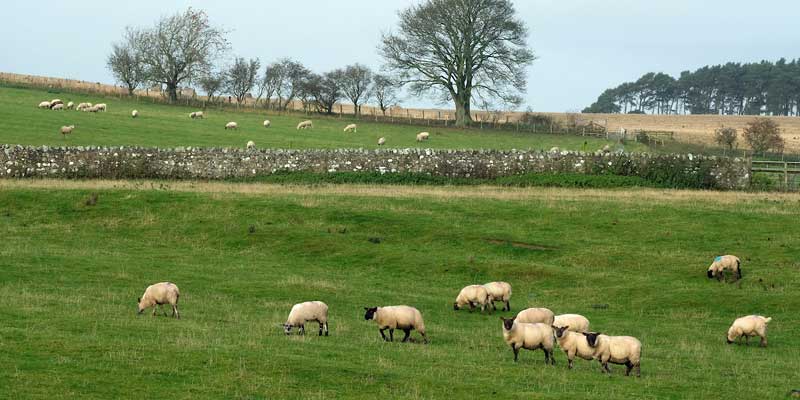
This is because in a number of cases, the options being considered need to fit into the farm’s rotations, farming type and system, and wider operational planning.
A significant amount of this is looking at yield maps and livestock performance and identifying areas of the business that are less productive and where agri-environmental schemes could garner extra income for the farm through the right mix of extensification and intensification.
The farmers spoken to were also very keen for advisers to take responsibility for the application process.
This is seen as a level of comfort and possibly a way of mitigating risk, should things go wrong.
It is difficult to see how this ingrained behaviour will change even with Defra’s desire to make the schemes as easy as possible for farmers to apply without the need for advice.
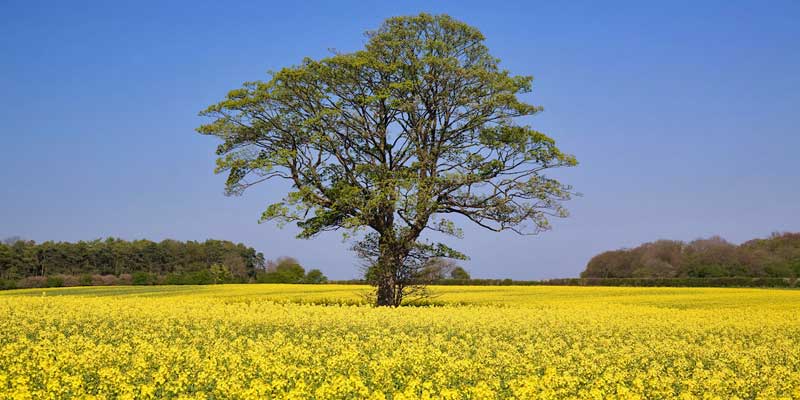
The support provided by an adviser is also prevalent throughout the implementation of an agreement.
This was seen as particularly important for infield options such as bumble bird plots, legume fallows etc. where the desire to produce a good ‘crop’ is present and has close ties with agronomy advice to deliver it.
Advisers are also relied upon heavily for troubleshooting should cover crops or similar look like they are failing to establish.
In an advice system that works and delivers for the particular requirements of individual farms – trust is hard to gain, but easily lost on farm – it is difficult to see why the farmers we spoke to would change the operation of the current situation.
How many accredited experts will we require?
It is clear that advice on the delivery of environmental benefits will be key to the sustainability of virtually all farm businesses that choose or are able to employ extra support and guidance.
The farms covered by the case studies relied heavily on external advisers for nutrient and soil management as well as changes to cultivation and livestock management practices that mitigate some of the environmental impacts of farming.
Every farmer would, therefore, benefit from a level of expert support (at a basic, publicly funded, level and or linked in with Catchment Sensitive Farming (CSF) advice as a complement to the advice offered by industry experts.
A trusted longstanding adviser network is clearly in operation on many farms. Trust has been built through collaboration and the delivery of proven benefits on farm.
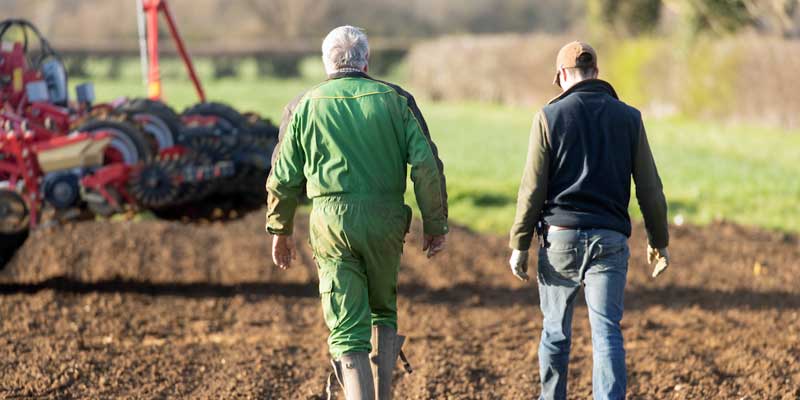
However, advisers from outside a farmer’s trusted circle with the exception of CSF officers and some wildlife advisers, are regularly viewed with scepticism, unless they had been recommended by one of their existing advisers, and this needs to be considered when making assessments about how many advisers are needed.
To ensure that messaging is taken on board by substantial proportions of the farming community, it would therefore appear that upskilling, equipping and expanding the existing community, with new accreditation opportunities for environmental specialisms is required, rather than creating new advisory bodies.
There are a significant number of farm environment advisers in practice but not yet accredited and a number of accredited advisers who wish to have their extra CPD in environmental management recognised.
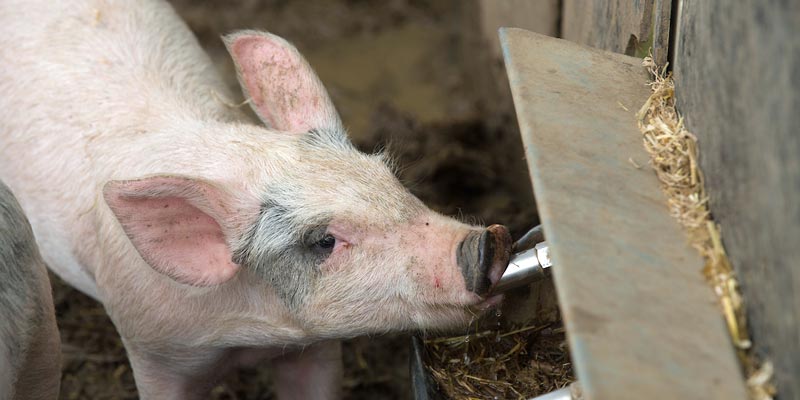
Skills gaps for highly specialised activities, such as carbon calculating and the provision of advice specific to the farm, are evident within the adviser community.
However, the developing and growing demand for such advice should pull through the recognition of these newly acquired skills, as is the plan for a Register/(s) recognising environmental competencies.
Should advice be mandatory? How much free advice should we give?
A clear theme in several of the case studies was the need for a ‘soft touch’ by those administering the environmental schemes.
The farmers involved were happy to take advice from long-term advisers who were viewed as integral to the running of the farm, and if necessary to look beyond that to specialists, such as Catchment Sensitive Farming Officers, or wildlife/water specialists (FWAG, for example) where they had been recommended through their advisers.
However, they are unlikely to warm to ‘mandatory’ advice provided by people who do not have an understanding of the specific operations and ambitions of the farms.
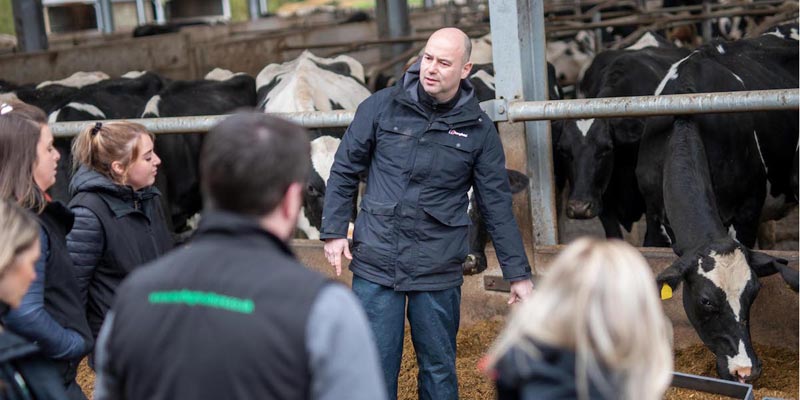
All farmers who participated in the case studies had felt the need to take advice on animal or crop nutrition or agronomy and were happy to pay for the quality of the advice that they were receiving.
This was primarily as they were seeing the benefits of that advice translated on farm.
A mandatory requirement for farmers to take advice may therefore improve the quality of the environmental benefits delivered or be self-advised through their own competence.
However, a ‘recommendation to take advice or gain own training’ would probably create the necessary market pull, but as a mandate it is unlikely to be well received by farmers and landowners, even though the cost should be outweighed by the investment.
There is concern that free and basic advice and guidance wouldn’t go much beyond addressing areas of basic farm compliance and may not extend to exploring a farms full potential.
Particularly where a number of advisers work on a farm and collaboration between them is required in terms of identifying opportunities and planning for and implementing them so as to avoid conflicting activities being undertaken.
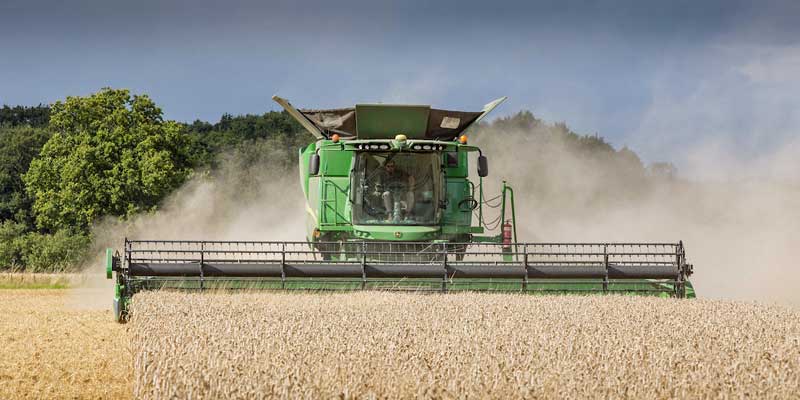
It is widely seen that advisers, like many farm inputs and services, are paid upon receipt of BPS payments.
Without BPS payments many farms are marginally profitable and with ELMS payments not going to be a direct replacement in terms of the right to receive payment or being of comparable value, there will be a shortfall and farmers were unclear about where this money is going to come from.
The quality of advice received to enable the delivery of environmental benefits has been evident throughout the case studies.
It would therefore appear beneficial for Defra to recognise and consider how payments could be made to farmers for taking advice that benefits the delivery of environmental benefits alongside productive farm businesses.

It would appear that this need has already been recognised through the future farming programme and the funding of vet visits through the annual health and welfare pathway that is due to be part of the SFI 2022 scheme.
It could be argued that crop and animal nutrition and agronomy (crop health) are just as important to the delivery of environmental benefits and would warrant a similar payment strategy being introduced as part of the wider ELMS roll-out.
How will we ensure the advisers have the skills and knowledge they need?
Farmers and advisers believe that the availability of up-to-date technical as well as policy-based knowledge drives an increase in actions towards the delivery of environmental benefits.
Some farmers and all the advisers we spoke to had FAR, BASIS and FACTS qualifications and were on the existing professional registers of these organisations.
A number also had specific environmental qualifications, such as BASIS’s BETA Conservation Management.
Continuing Professional Development (CPD) requirements for advisers to maintain their places on their professional register, has recently focussed on training and upskilling advisers in the delivery of environmental benefits to ensure they have up-to-date technical information in this area and are clear about the expectations from farmers.
There were hurdles, particularly for farmers, in maintaining their current status on the professional registers mainly due to the need to continue with CPD after becoming qualified, something that a number of farmers we spoke to had struggled to find the time and resource for.
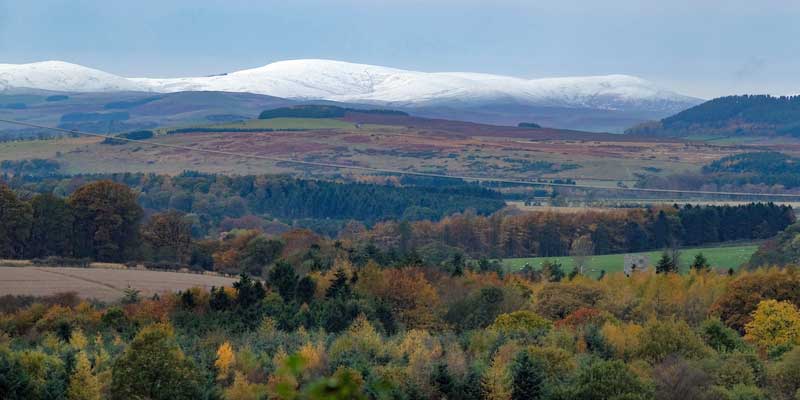
The animal, crop nutrition or agronomy advisers currently advising on farm and trusted by their farmer clients therefore offer an ideal existing channel to advise on the delivery of environmental benefits.
Typically, this advisory community invests £40 million in training hours and knowledge transfer to meet evolving farmers and grower needs.
The lack of policy-based guidance appears to be a significant gap in both farmer and adviser knowledge of the ELM scheme.
There would appear to be no reason why Defra wouldn’t choose to use this existing adviser network as one of the ways to disseminate its policy messages.
Other Environmental Land Management Scheme considerations
Profitability is a key element of farm sustainability. Without profits farms are unsustainable for the future. Equally support payments have played a vital role in farm profitability and may be the difference between profit or loss.
Farmers have often found the application of past stewardship schemes to be overly bureaucratic. They would prefer an approach that takes into account the practicalities of farming.
Regulations on timings of applications, planting etc. frequently do not take account of the farming year.
Farmers and advisers need a contact into scheme administrators – not necessarily a helpline, perhaps area coordinators - who understand farming and the locality and can engage with them in the implementation of the schemes.
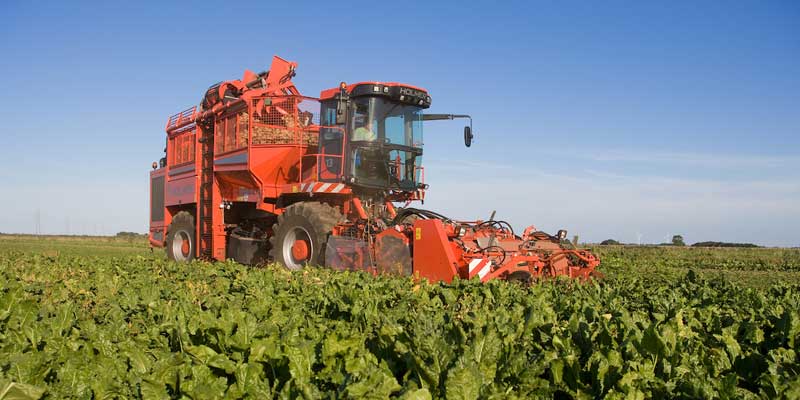
Farmers are concerned that entering agri-environmental schemes or other agreements may lead to their land use being restricted.
Sometimes they would prefer to carry out environmental activities without support in order to avoid being ‘dictated to’.
The amount of money on offer through current agri-environment schemes is seen as being too small and not worth the administration or effort involved. They fear that they will find a similar situation with ELMS.
Farming is a seasonal/cyclical business and the seasons do not stop while decisions are made on grant applications.
Also, farms have to make long-term plans and need certainty about future income. The current state of the agricultural transition period is not conducive to this.
Farmers are concerned that ELMS and other Government regulations may lead to them having to meet high and exacting standards while being undercut by cheap imported food.
ELMS should reward activity that helps to improve the productive assets of land and farms such as through healthy soil and livestock management, as well as activity that helps to maintain natural capital such as hedge maintenance and bumble bird plots.
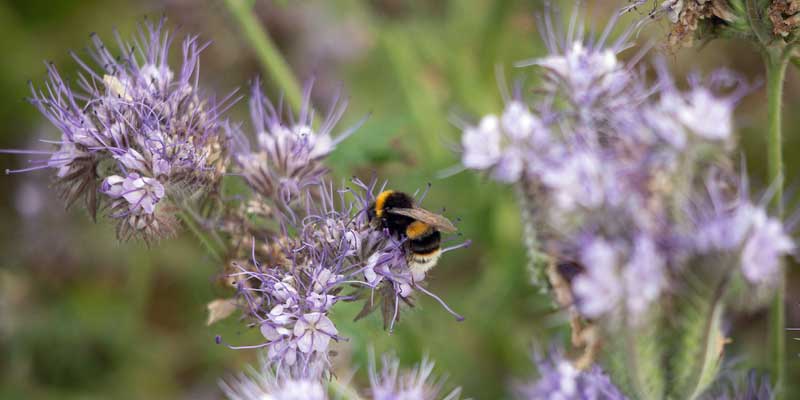
Increasingly retailers and processors are putting pressure on farmers to deliver food produced to environmental standards.
Farmers will need specific Sustainable Farming Incentive (SFI) level support towards Net Zero to enable them to supply what the market will demand and cannot, or is not prepared to, pay for.
A Net Zero standard could provide the clarity needed. It is hoped that ELMS will work alongside the requirements that these entities are placing on farmers.
Typically, farmer understanding of the changes that will be brought about by the Environmental Land Management scheme is low.
This is mainly down to the comparatively small amount of information that has been released into the public domain about the development of the scheme.
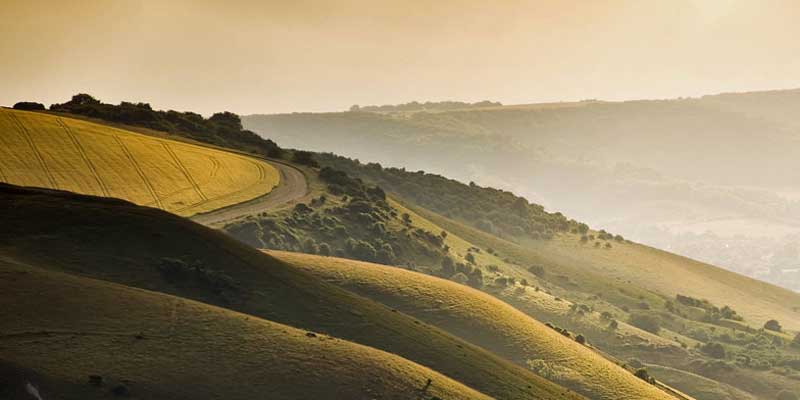
Views were also heard of the cumbersome nature in which information is presented on the government’s website, particularly with respect to the Sustainable Farming Incentive (SFI) Pilot.
The lack of clarity on where the scheme expects to be in 2024, with details of the options that are going to be available and at what rate they are to be paid are hindering farmers’ ability to plan their way through the agricultural transition and beyond.
Integrated farm planning is seen as an integral way to future-proof farm businesses, yet this is hindered by the current lack of clarity about what the future will hold.
Focus Group research
In terms of the role of advisers and the activities that they undertake on farm, the focus group research broadly supported the conclusions of the individual case studies.
However, the range of already-existing advisers identified in the focus groups was wider than that covered by the case studies.
There was a general distrust of external advisers compared to those that had long-term trading, advisory/consultancy or professional farm advice relationships with farmers,including land agents, valuers etc.
In the experiences of the focus group participants, these people have a proven track record and will quickly acquire knowledge of the new schemes.
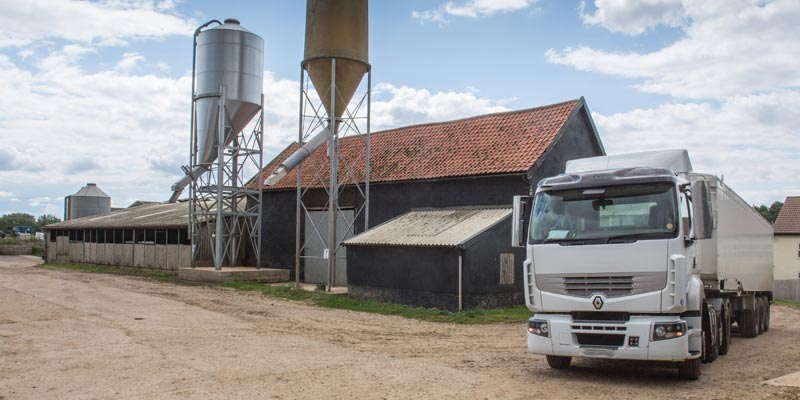
The focus groups concluded that there are generally sufficient accredited experts working in the industry, although some gaps in advice provision due to inability to pay or out of choice exist.
However, Defra should not set up a network of advisers as they would not be trusted.
It is believed that they would be too generic and not knowledgeable about each farm as the current and growing network of advisers is. The view from all farmers and advisers is that a clear ‘rule book’ is needed to help them plan and record public goods.
This was made clear throughout the farmer focus groups, however this is information that is lacking in current Defra communications.
It was felt that advice should not be mandatory. Farmers need to be provided with detailed information about the schemes: what is expected of them, what environmental benefits their choices will deliver and how much they will be paid for delivering them.
Given this information they can choose to read up for themselves, or rely on their own advisers to interpret and plan how they will fit into farm operations. In terms of whether advice should be free, the focus groups welcomed that idea but were sceptical about the quality of such advice.
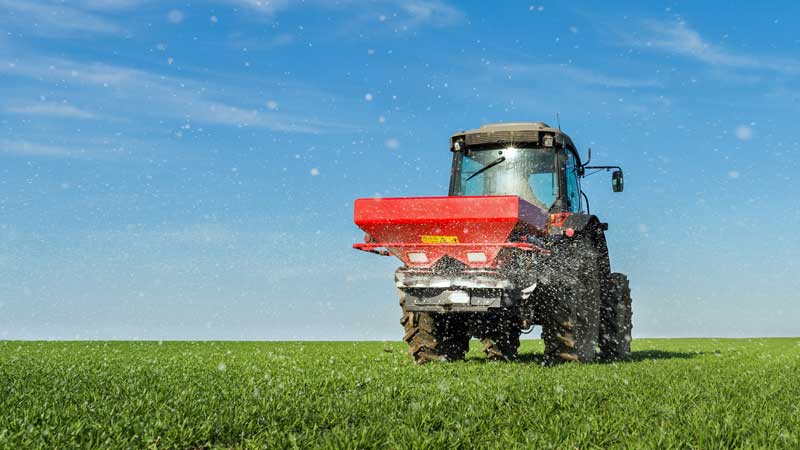
The focus group participants felt that advisers were adept at adapting to change in this area – as assessed by the quality of advice provided at the time of the introduction of and changes to the various iterations of agri-environment schemes seen in the last fifteen or so years.
A number of participants were aware of adviser accreditation bodies and their role in providing CPD opportunities and upskilling the existing adviser community and assumed that Defra would use this route to ensure adviser competence around ELMS.
Case studies
Click below to read the individual farm case studies collated for this report.
These case studies explain the value that advisers bring to a wide range of farms across the country.
Conclusions
A lack of information or clarity affected the ability of all the farmers engaged in this test – whether as individuals or in the focus groups – limiting their ability to plan for ELMS. However, there was a clear concensus when it came to the role of advisers, their on-farm activities and training:
- The vast majority of farmers have long-term relationships with advisers of some sort or can identify organisations they trust to advise them. They will use this network to advise them on all aspects of ELMS from planning through to recording the public goods they’ve delivered.
- Trust is a major issue and there is distrust of advisers external to their business operations, partly because of a perceived lack of general or specific knowledge of farming. An influx of advisers without this farm-based knowledge of agricultural production methods and commercial aspects will not help farmers deliver ELMS.
- Farmers are confident that their current channels of advice will quickly grasp the details of ELMS – when it becomes available – and help them to plan and implement aspects that will benefit their farm business.
- Training, CPD and skills registration (through accreditation bodies such as BASIS, FACTS, FAR) are embedded in the industry and widely acknowledged by farmers who believe that these mechanisms will be used to bring their advisers and them up to speed on ELMS and future environmental management opportunities.
Focus Groups Report
Project Overview and Context
The Agricultural Industries Confederation (AIC) has been funded by Defra to carry out a Test & Trial project to examine the process by which trusted relationships between farmers and adviser(s) have the potential to affect the level of advice take-up and support the delivery of public goods through the Environmental Land Management (ELM) schemes.
The test has involved the creation of 12 case studies on English farms representing the key arable and livestock sectors who have taken advice on animal or crop nutrition or agronomy from advisers on either the Feed Adviser Register, FACTS or BASIS professional registers.
Each case study has explored detailed information about the farm; the advice provided by one or more adviser; the relationship between the farmer and the adviser; and the present and future success of the advice to deliver the outcomes of the ELM schemes.
Monitoring and evaluation of the test to validate the findings of the case studies was undertaken. England Marketing was employed to undertake this validation through a series of three focus groups comprising 28 farmers that had not been involved in the creation of the case studies.
Objectives
- To validate the 12 case studies created by AIC through a peer review mechanism to ensure that they are representative of wider experiences of farmers across the industry.
- To provide feedback on the key findings of the summary report of the Test and Trial project.
- To add any additional information with regards to the current situation of farmers on environmental activity, existing agri-environment schemes and proposals for ELMS.
Methodology
A series of 3 focus groups comprising of 10 farmers were organised to cover a broad range of farm types and sizes. England Marketing recruited the farmers from their own database of farmers.
The case study reports were sent to participating farmers ahead of the groups. Each farmer received four relevant case studies so that they could comment on these during the focus groups.
The focus groups were held at Kingshay, Bridge Farm, Glastonbury BA6 8LU, Somerset on 1 March and at The Research Hub, Fenside Road, Warboys, PE28 2XR on 3 March.
Unfortunately, two of the recruited farmers did not turn up for Focus Group 2 - one was rushed into hospital and one broke down. Whilst 12 farmers were recruited for each group to allow for no-shows, a further six were busy on the day and could not confirm attendance. Therefore, the total number of farmers engaged in the monitoring and evaluation of the project was reduced to 28.
Each group looked in detail at the four case studies they had been provided to assess how representative of their own on-farm experiences they were. The wider findings of all of the case studies were also presented to each group and comment sought on how well these reflect individual group members own experiences.
This report documents the findings from the three groups and identifies the main points made at each group.
Summary of Key Findings from the Three Groups
Background to the Groups
The three groups took place in Somerset, predominantly amongst dairy and sheep farmers, and in Cambridgeshire amongst a range of arable farmers, some of whom also had livestock.
There were a range of farm sizes including a couple of small 150 acres farms (organic and dairy) through to some farming enterprises covering several thousand acres.
Current Involvement in Environmental Schemes
Most of the farmers who engaged in the groups were in environmental schemes including ELS, HLS and Mid-Tier. A few had tried the schemes but not pursued them as they were not fit for their enterprises.
All the farmers care about the environment, they see this care as integral to their approach to farming. Care for soil, water and biodiversity is key to ensure that their enterprises are sustainable in the long term.
They feel that the media misrepresent their attitudes and are not conversant with the majority of modern farmers farming in harmony with the environment. Stories about bad practice are sensationalized (e.g. Panorama).
They are motivated to protect their immediate environment by the need to make it sustainable for the future of their businesses, not by schemes and subsidies.
The removal of BPS is forcing farmers to consider alternative income streams.
Agri-environment schemes are part of this, but the definition from Defra that farming needs to deliver public goods is viewed with scepticism and mistrust.

Farmers are willing to make the public aware of what they are doing but the term public goods suggests that the whole countryside would be open for public access.
Whilst England Marketing believe this to be a misunderstanding of Defra’s intentions, farmers views are that this is wrong as the whole concept is at odds with protecting and enhancing the environment.
Rightly or wrongly, ELMS is being seen as a means to replace BPS to generate an income, particularly as many farms are totally dependent on BPS to make a margin.
The belief is that as with existing agri-environment schemes they will favour the larger farms who can afford the time, and money to work on environmental schemes - something which some of the smaller farms do not have.
Current Understanding of ELMS
There was a worrying lack of understanding about ELMS and the likely activities that farmers could receive payment for under the scheme.
Very few had shown interest in the SFI National Pilot - not wanting to commit to something new that doesn’t deliver for them and all felt that there was not enough information available about SFI 2022 for them to make a decision whether to enter into it.

They were happy to talk around principles of with the following being common themes of the three groups:
- One size does not fit all. DEFRA appears to be creating a system that takes a blanket approach to environmental enhancement. This will not work as every farm is different and the geography across the UK varies enormously. Moreover, every farmer is in a different situation – someone who is close to retirement may put his whole farm down to stewardship simply because he no longer wants to work the land.
- The groups questioned the idea of putting grade 1 or 2 land which is very productive into stewardship. The scheme should focus on converting marginal land only. At the end of the day farming is to produce food, we cannot become a nation that has very pretty countryside but imports all its food. Passing the food production to elsewhere in the world does not guarantee quality of food and just shifts environmental problems elsewhere.
- The ambitions to become carbon neutral are misinformed. We cannot let large companies buy up vast tracts of land to plant trees because land which is already covered in grass provides an ideal space for carbon sequestration and can be grazed and used in food production. There should be a focus on carbon reduction not carbon neutrality. We can achieve this with the amount we consume as a country.
- Any scheme will need to pay a realistic amount to make farmers consider it. The key driver for uptake will be money – if it is worthwhile farmers will do it. If they can make more by conventional agriculture, they will focus on that. It is not so much a question of time – if it is sufficiently worthwhile, they will make the time.
The Role of Advisers
All farmers have a small network of trusted advisers they use including agronomists, feed advisers, land agents, specialist consultants and advisory organisations such as FWAG.
These people are seen as having a trusted track record on-farm and like with previous agri-environment schemes, they will quickly acquire knowledge of the new scheme.
A number of participants were aware of organisations that run professional registers, such as BASIS and CAAV, believing that they would have a critical role in ensuring their advisers have up-to-date knowledge of the schemes.
There was a general distrust of external advisers compared to those that had long-term relationships with farmers, whether they are distributor or independent agronomist, feed or fertiliser advisers, land agents or other consultants.
In some farmer experiences, the companies they work with are employing environmental specialists to work alongside their crop or animal nutritionist or agronomists. Being embedded with a trusted adviser, or company that farmers work with routinely, is seen by farmers as a way of earning trust on-farm.
All farmers highlighted that until Defra provides the details of ELMS no one can provide advice with any confidence that will allow farmers to plan for the future - emphasising that this is very frustrating for the whole industry. Farmers tend to plan several years ahead and providing the details of the scheme so late will not help with farmer uptake.

With BPS down to 50% by 2024, it will soon be too late for farmers to take decisions on whether to go into ELMS or not so as to make up some of the shortfall in income that they will see. This will damage farmer confidence in Defra and the scheme.
The wholesale view was that Defra should not set up a network of advisers – they would not be trusted. They would be too generic and not knowledgeable about each farm as the current network of advisers is.
It was also felt that there are enough advisers working in the industry to not need any more. Discussions frequently returned to the fact that all farmers and advisers need is a clear rule book.
The groups were concerned about the provision of mandatory advice – particularly around who would be providing it. The view being that farmers need to be given the facts about what is expected of them – what environmental benefits they could chose to deliver and how much payment they would receive for delivering them – so that they can choose to read or rely on their own advisers to process.
When asked whether advice should be provided for free the groups welcomed this but countered that there ain’t no such thing as a free lunch and questioned the quality of advice that would be provided.
In broad terms the group research agreed with the overall findings of the case studies with regards the provision of advisers: an advice network, trusted by farmers, already existed and can be easily deployed to communicate details of ELMS.
Report of the Main Points from the Discussions
Focus group held at Kingshay, Bridge Farm, Glastonbury BA6 8LU, Somerset on 1 March.
The Farmers were sent the following case studies in advance of the focus group:
The participants in the group in Somerset were as follows:
Name: Paul
Livestock: 120
Acres: 400
Agri-environment activity: They are in a Mid-Tier scheme and have regular open days on their farm for which they get paid through the scheme. Also make and sell their own ice cream
Name: Michael
Livestock: 720
Acres: 1,300
Agri-environment activity: They are not in a scheme at the moment but grow feed for their livestock, have planted lots of trees, created ponds, engage in sustainable farming, with a range of cover crops and are proactive about soils
Name: Neil
Livestock: Adviser no dairy but beef and sheep
Acres: 1,100
Agri-environment activity: Various areas of land are in mid-tier schemes
Name: Graham
Livestock: 200 dairy, 140 rearing animals and 260 beef
Acres: 400
Agri-environment activity: Have put in new hedges and orchards but not in a scheme
Name: Andrew
Livestock: 180
Acres: 1,200
Agri-environment activity: Focus on home saved feed and has dabbled in Mid-Tier
Name: Robert
Livestock: 260-270
Acres: 305
Agri-environment activity: Came out of the ELS scheme. Has ancient monuments on the farm.
Name: Natalie
Livestock: 280
Acres: 500
Agri-environment activity: In a Mid-Tier scheme with margins, hedges and delayed cutting of hay
Name: Stephen
Livestock: 200
Acres: 400
Agri-environment activity: Is facing a big issue with slurry storage. Not currently in any schemes.
Name: James
Livestock: 70
Acres: 150
Agri-environment activity: In a Mid-Tier Scheme.
Name: Jon
Livestock: 420 - 2 dairy herds plus arable
Arces: 2,000
Agri-environment activity: Organic, they have composting and are in a HLS scheme.
Environmental Schemes
The initial discussion, after introductions included a discussion around what environmental schemes they are in or what environmental activities they have undertaken on their farm.
Everyone in the group has engaged in some form of environmental activity on their farm and these are briefly summarised in the table above.
In the initial discussion only one farmer mentioned ELMS and at the same time said he was not really considering it yet because there is so little information about it.
Environmental Benefits and Public Goods
When asked what they see as their role in providing environmental benefits and public goods, they all unanimously said they look after the environment as a matter of course. They see themselves as guardians of the landscape and undertake projects and activities on their farms which are beneficial for the environment as part of their day-to-day work.
This is rarely truly rewarded in financial terms by the industry other than to protect the soils and the countryside to ensure that their farming enterprises are viable and sustainable.
They feel that they are providing the public goods for no obvious reward, but this is not recognised by the public.
For farmers to be involved in schemes it is a demonstrable way to showcase what they are doing so they agree with having schemes but feel that Defra and the industry (input companies, food manufacturers and retailers) need to engage with their customers (both those in the supply chain and consumers) more to ensure that the message that farmers do care about the environment is getting across at all levels.
There are so many positive things about farming in an environmentally friendly way, but in a price led market, there is less focus on sustainably produced products. The comments below represent the strength of feeling amongst this group.
Comments
"There has to be a trade-off. The public are not aware that we could rewild to make a chocolate box appearance for the countryside, but we have no control if food is all imported."
"We need to take the public with us."
"Farmers already doing it {environmental management] but the picture of British agriculture is not getting to Mrs Housewife. They would pay more for food if they knew."
"Over 60 years food has become cheaper and milk, in particular, is a loss leader – the mindset needs to change across the industry."
"It is far better to put 10% of non-productive land into a scheme because on most farms 10% of productivity would not be lost."
One farmer said they are all businesses and have to make a profit and/or margin to survive. They can buy inputs at a low price, but this just sustains a low price for food produced – the margins farmers receive for their products don’t increase.
The group felt that things will change due to world events (the global pandemic, Russia’s invasion of Ukraine and climate change).
The media, including the BBC do not support farming. The BBC are not helping as they present an unbalanced view, whether Countryfile talking about ripping up hedges which happened more in the 1970s, or Panorama, who did farming no favours with their recent broadcast on 16th February 2022.
Comments
"It’s lack of training and control that leads to a few farms becoming the bad apples and the Panorama programme was taking one example out of context."
One farmer said he likes to get people on the farm to explain what they do – regular visits through the year and he gives up around 4 hours a week.
Discussion About Advisers
This group use a combination of vets, nutritionists and agronomists. They do not necessarily all sit round the table together but mostly visit the farm on a regular basis.
Apart from two farmers who were in the process of changing advisers (e.g., due to retirement), they had mostly used their advisers for quite a long time and had a trusted relationship with them.
A good relationship with advisers that know the farms well are best. Once you know them they become a sounding board. They act as a fresh pair of eyes but farmers do not have to listen to them.
The group said that until Defra release more detail about the ELMS scheme, everyone, including the advisers, are rather in the dark. Defra should provide a guide to the scheme that both farmers and advisers can access.
Some of the group reported that their advisers have said don’t do anything until Defra gets some sort of order into the programme and provides the clarity needed.
Comments
"We need structure and know what the clear plan is. Produce a publication – tell farmers directly. We can all read a booklet."
"Send us hard information – like they did for Countryside Stewardship – so we can download the ELMS one."
The lack of clarity is creating a Chinese whispers situation. It seems that Defra do not want to commit yet and there is some disagreement with the Environment Agency.
The plans to have one vet visit per farm per year does not make sense because these livestock farmers all work closely with own vets anyway, often with monthly visits. They would not want a strange vet visiting the farm who does not know their situation and details of their flock or herd.
Many of the farmers are members of livestock groups where they discuss ideas and benchmark their figures.
A couple had taken business support information through the Future Farm Resilience Fund where they had a consultant come to see them at an individual level to give more on farm costings and benchmarking and one farmer mentioned that he had used AHDB advisers and one talked about how good FWAG are.
The group feel that there is no shortage of advisers - Defra do not need to recruit more but simply explain the rules of ELMS to the network that already exists. Some of them speak to several advisers in order to reach a consensus before deciding what to do and this will be the case with environmental schemes as well.
This group felt that Defra regard farmers as having no experience or knowledge of their jobs.
Views on the Case Studies
The case studies illustrated that ELMS is still the big unknown and the featured farmers are not prepared to make decisions yet.
Defra did not get enough people sign up for pilot schemes so testing of the ELMS pilot is not going to yield enough data. Countryside Stewardship looks better than ELMS at the moment but the farmers understand that they can swap over. None will go into SFI 2022 when you can transfer later without issues.
The group felt ELMS will become clearer in a couple of years when BPS is down to 50% and farmers will be forced to look more closely at the scheme in order to supplement their income.
Also, there are other schemes which are not clear yet, such as carbon credits and these farmers said they have had the advice not to do anything yet until the picture is a lot clearer.
Comments
"We are sitting on our hands until we know what to do."
The farmers felt that applying the same rules across the country, for example for RB209 is not helpful. It means that farmers are not allowed to use their skill and knowledge to decide when to do jobs.
Comments
"We don’t know what Defra’s ambitions are yet. Some of the rules are ridiculous. i.e., slurry grants not available until farms are compliant, and now we are told we are not being allowed to spread muck until the spring and so on."
The view was that the Environment Agency have stepped in to make their point about environmental schemes but they know even less than the Civil Servants at Defra about practical farming.
Comments
"Water companies can still discharge straight into a water course while we are being beaten with sticks."
The dithering and lack of clarity makes it difficult for farmers to plan and the group agreed that this came through in the case studies.
They are also aware that so much funding is available but it is difficult to find it and access it. The case studies demonstrated this to an extent and a discussion ensued at the end of this group about who had used which sources of funding.
The group concluded that farmers are experimental all the time anyway in the way that they work so they will adapt and change to the new regime when it is made clear.
Focus group held at The Research Hub, Warboys Cambridgeshire PE28 2XR, 3 March.
The Farmers were sent the following case studies in advance of the focus group:
Those attending the Group were:
Name: Jamie
Produce/livestock: Wheat, barley, OSR and beans
Arces: 2,400
Agri-environment activity: Had a few years in ELS but came out of this some years ago as it did not suit their farm.
Name: Mathew
Produce/livestock: Potatoes and onions
Acres: 2,500
Agri-environment activity: In the Countryside Stewardship Scheme for 20 years and keen to continue.
Name: Marc
Produce/livestock: Cereals, potatoes and onions
Acres: 5,000
Agri-environment activity: Have been in HLS for 10 years and the family has always undertaken a lot of planting going back to his grandfather’s time.
Name: Steve
Produce/livestock: Wheat, OSR and field beans
Acres: 400
Agri-environment activity: Was in ELS but this ran out last year and he is waiting to see what comes next.
Name: Andrew
Produce/livestock: Potatoes, wheat, peas, sugar beet
Acres: 900
Agri-environment activity: In ELS on his own farm and in HLS on a farm they rent.
Name: Anna
Produce/livestock: 60 cattle, wheat, barley, spring barley and OSR
Acres: 4,500
Agri-environment activity: In a Countryside Stewardship scheme – they are spread across several farms, and it varies from farm to farm.
Name: Robert
Produce/livestock: Arable, wheat sugar beet, barley, pumpkins and sweetcorn
Acres: 700
Agri-environment activity: Was in ELS schemes twice for 3 years at a time but does not suit their way of farming so no longer in the scheme. Adopts environmentally friendly activities including reducing traffic, grass ad wildflower margins, etc.
Name: Matthew
Produce/livestock: Half grassland, wheat, barley beans
Acres: 650
Agri-environment activity: Not currently in a scheme but have been in schemes in the past before he came back to farm
Environmental Schemes
Most of the farmers had been in schemes in the past although half said they were no longer in schemes; one was waiting to see what comes next after his ELS scheme recently expired and 3 did not feel the schemes worked for them so they have come out (in particular on the Fen).
None of the farmers present has chosen to go into the SFI pilot as their understanding was that they could not continue with their existing scheme.
Those who are involved in shooting are more likely to be involved in schemes as there is a motivation to undertake conversation.
Environmental Benefits and Public goods
When asked about their role regarding environmental benefits and public goods, they all feel that farmers care about the environment as part of their work in order to protect their land and farm in harmony with nature. However, sustainability needs to be profitable. At the end of the day farming is for food production and this needs to be given a priority.
Comments
"We mustn’t lose sight of the fact that the main purpose of farming is to produce food."
"Nearly all farmers want to work with nature."
Older generations used to undertake environmental work as a matter of course when farming was more profitable. Now it has to be either lower food prices or higher subsides which would encourage the take up of environmental schemes. The feeling is that farmers will respond well to a suitable cash incentive.
There are concerns that using the term public goods means that the public feel they have a right to walk across farmland freely and that is not good as they can cause damage to crops and livestock.
Comments
"We are close to an urban area and we face issues with people wandering over our land all the time. It was worse when the pandemic started."
This group said the environmental schemes that have gone before have tended to have a narrow vision with a focus on improving the populations of specific species and there is often conflicting advice from Defra. The schemes have not taken a holistic, whole farm approach.
There needs to be an understanding that the best quality land is used for food production while the land of lower quality can be used for environmental schemes. The land in Cambridgeshire is good quality and fields are large and regular in shape so there should be a focus on food production. The quirky, smaller areas are better for rewilding and stewardship plots.
With regard to ELMs; no one can really say what is involved and so far, there is lack of clarity on what it will involve.
Comments
"It seems to be based on carbon reduction rather than food production."
ELMS will need to be simple and straightforward to apply for, but there needs to be a guide as to what it entails. It is overdue as farmers need 12- 18 months to plan what they are doing to for in with rotation and cropping plans.
Comments
"With our rotation we are often planning 5 to 10 years in advance with some crops – we can’t just drop everything to fit in with ELMS although if the money is worthwhile we might have to."
Discussion about Advisers
Most of the group use an agronomist or series of agronomists depending on the crops they grow. They feel that agronomists are mainly for crops and do not necessarily have overall knowledge of the farm to provide advice on environmental schemes. This may be a role better suited to land agents or business advisers who can look at the whole farm from a holistic business point of view.
However, it was acknowledged that many of the larger companies such as Frontier and Hutchinsons are also employing environmental advisers. Many land agents are setting themselves up to cover environmental issues as well.
One farmer owned quarries and is considering planting trees, but an agronomist might not be in a position to advise on this. Certain providers were also mentioned as possible advisers they would turn to.
One farmer said he would not want to rely upon an adviser from just one company and be controlled by that company. He also commented that he would take advice from several sources rather than relying upon just one adviser. There was agreement round the table with this statement.
Some of the farmers in the group said they would do their own research first, particularly on environmental schemes so that they have some ideas of what to do before talking to an adviser, if they need to.
Comments
"Why pay for help if you can find out yourself?"
This group of farmers were cynical about the ability for DEFRA to understand farming as a whole because so many people within the organisation have very specific jobs and rarely visit farms.
They would not want Defra to provide advisers and free advice for ELMS as the money for the schemes would all go on this extra layer. It is better to use the existing adviser network, but they will need to be trained up and conversant with the new systems – something their professional bodies would ensure.
Those advisers who work with a number of farms can advise on best practice through seeing what works well at different farms. The farmers would want to see their own trusted advisers for future advice on ELMS.
Discussion about the Relevance of the Case studies
One of the farmers in the group had visited two of the farms featured in the case studies they had been given.
It was noted that all the farms featured are in some form of stewardship scheme and so as a few of the farms represented in this group were not in schemes currently they were not so relevant.
However, the discussion around advisers, delivery of advice on how Defra should do this via an existing network was validated.
Additional points made by this groups of farmers were as follows:
Comments
"Any new scheme introduced needs to have a simple application process."
"It needs to ensure that any penalties incurred for not quite achieving the desired outcomes are proportional to the failure to meet the standard and do not incur a substantial funding cut."
"If a farmer meets the required standards, he should be rewarded, those who are already doing well need to be rewarded, not just those who improve."
"A question was raised about landlords and tenant – will landlords be entitled to some of the ELMS funding? How will those relationships be managed?"
"There used to be more profit in farming. Either their needs to be more money paid for food so farmers can do the environmental work, or the schemes needs to increase their rewards. It’s as simple as that."
Focus group held at The Research Hub, Warboys Cambridgeshire PE28 2XR on 3 March.
The Farmers were sent the following case studies in advance of the focus group:
The Participants for this group were as follows:
Name: Bill
Produce/livestock: Wheat, oats, and beans
Arces: 1,606
Agri-environment activity: Just finished a mid-tier agreement and waiting to see what comes down the line with ELMS
Name: Chris
Produce/livestock: Arable
Arces: 1,500
Agri-environment activity: In the last year of a mid-tier scheme
Name: Dan
Produce/livestock: Cattle, sheep, arable
Arces: 500
Agri-environment activity: In two mid-tier schemes currently
Name: Geoff
Produce/livestock: Cattle in summer, Wheat, barley, oats, OSR and beans
Arces: 1,200
Agri-environment activity: 10 years in countryside stewardship and 20 years in HLS and ELS schemes
Name: Jacob
Produce/livestock: Sheep, cattle
Arces: 600
Agri-environment activity: Not in scheme but has been in the past
Name: John
Produce/livestock: Beans, sugar beet,potatoes, wheat
Arces: 1,000
Agri-environment activity: Has tried ELS in the past but does not suit the Fen. A focus on composting and manure spreading when available
Name: Philip
Produce/livestock: Wheat, winter beans, spring wheat, spring oats and sugar beet
Arces: 550
Agri-environment activity: In ELS until 2 years ago but waiting to see what comes down the line with ELMS
Name: Stephen
Produce/livestock: Oats
Arces: 150
Agri-environment activity: Organic. And the Organic Entry Level Scheme and working with the Woodland Trust looking at planting a 10-acre wood
Name: Ross
Produce/livestock: Arable
Arces: 1,700
Agri-environment activity: In a Mid-Tier scheme with a focus on shooting
Name: Rupert
Produce/livestock: Potatoes, wheat, barley, beans, peas and OSR
Arces: 8,500
Agri-environment activity: Operating 2 HLS Schemes, 1 year into a Mid-Tier Scheme and rolling over a Countryside Stewardship Scheme on woodland. Diversified into residential property and operating the pub in the village.
Environmental Schemes
Most of the farmers were in environment schemes or had tried them in the past. Two farming on the Fen had tried stewardship but had come out of the schemes as they do not really suit the Fens. One farmer is biding his time having recently completed a scheme to wait and see what else is coming up.
This group of farmers are looking at schemes as they want the financial gain. Most of them have pretty good land rather than marginal land. To reclaim some of the BPS, they will consider ELMS but do not want to waste good land on this.
Any scheme should not be ‘one size fits all’ across the country: it depends on the land as well as the situation of the farmer because there is so much diversity in terms of soil and land as well as age and social position of the farmers. A blanket scheme will not work.
With Mid-Tier it has been more based on catchment areas and suits the local environment – the group generally praised Andrew Downes who used to work for Natural England and was very aware locally of what would work.
The schemes should be adapted to the immediate situation on each farm.
The Sustainable Farming Initiative does not suit everyone either.
Typical comments were:
Comments
"The fens are a very different area from 5 miles that way [west]."
"A floristic margin attracts more funding than a grass margin, but a grass margin works better on the Fen."
"We are trying to make fields more efficient – we started regenerative farming with min till but you can’t do that growing veg."
Environmental Benefits and Public Goods
The farmers in this group objected to the term "Public Goods".
Comments
"This is the wrong terminology – everyone thinks they can walk all over our land which has been exacerbated by Covid."
"It should be environmental goods."
"We don’t want public walking all over it as it mucks up the environment."
"A lot of farms are looking at ELMS as a lifebelt to compensate for the removal of BPS."
With regard to ELMS, there is not enough information available yet, so people won’t commit. The pilot scheme has not been regarded as worth it and no one in the group had signed up.
The uptake doesn’t appear to have been great and one of the farmers commented that DEFRA are just fishing to see what kind of uptake they get.
Those who are facing schemes that are coming to an end over the next few months are waiting to see what ELMS will be like but are conscious that they will go through a period of a significant loss of income for some months.
There is a suspicion that the ELMS money will go to large estates who can afford to put the whole estate down compared to small family farms that will struggle to be part of the wider schemes. Without the subsidy a lot will not be able to stay in farming.
Landlords may take the money and get rid of tenants. This group said there is an issue about tenanted farms – who will get the money?
Discussion About Advisers
The group all use a combination of land agents, agronomists and the likes of FWAG, AHDB, The Woodland Trust and Oakbank were mentioned more for the environmental side.
Land agents are adding environmental advice to their portfolios, similarly agronomy companies, and are ready and waiting for more details about ELMS.
It will be important for all advisers to learn about environmental issues going forwards – the younger ones are looking more closely at this as part of their training and the existing advisers will be upskilled by their accreditation bodies, such as BASIS and CAAV, in order to keep their place on professional registers.
Comments
"Environmental advice will evolve into part of the agronomist’s job."
They often use a combination of advisers (some are independent and some are connected to large companies) to plan the operations of the farm.
They are all sufficiently experienced and knowledgeable to question their agronomists but not challenge them – if they challenged them too much why would they use them? They work together to agree a path forwards.
Some of them work with their advisers very much as a team.
Comments
"I pull all the specialists together, but I have the overview – it’s so complicated you can’t do everything on your own."
"Finance, agronomy and environment have all got to come together – it all comes down to money ."
ELMS will not be a saving grace because there is a lot of work time and money that goes into the environmental schemes.
There needs to be a Rule Book.
Comments
"We only know half the picture – we can’t make decisions as we are planning 2-10 years in advance."
"We are being asked to make decisions lastminute.com."
Discussion About the Relevance of the Case Studies
The case studies mainly were big, diversified units and serious producers. Lots of family farms won’t be able to survive without a subsidy. This group said that three of the case studies do not quite represent activities on their farms and they felt that the smaller farm was a bit more realistic about how they were operating.
This group felt that the farms featured were more prone to concentrating on making money themselves through their own diversification rather than taking subsidies. The smaller farms will struggle to make money under ELMS.
Comments
"It’s like the grain trade – Defra are fishing all the while to see how many takers they get. If they don’t get any, they have pitched it wrong."
"The policy is geared to pay farmers enough to keep them under control."
"We will produce less food."
One farmer questioned whether we can we live a carbon neutral life - the question is how to measure carbon neutrality? It seems that ELMS could be all about carbon neutrality. One farmer said agriculture is a dirty business, like many others, in supporting a consumer society – but we need to accept that if we are to produce our own food and the group agreed with this.
The group felt that carbon offsetting is wrong in the name of public good. The farmed land is already sequestering carbon and herbal leys can sequester more than trees. Grass can be grazed but trees can’t. They concluded that we can reduce our carbon footprint but cannot offset it
Comments
"I can graze herbal leys but can’t get a return from trees for many years. Trees are a false paradise as they turn back to carbon."
"Grass is the best at absorbing carbon – the steppes and Savanah are the great carbon sinks."
With regard to Defra considering a network of advisers, this group agreed that they have the skills sets they need in their businesses or from their trusted advisers, so why be lectured from someone outside that is generic and can’t be specific to them.
Advisers will get up to speed very quickly when the details of the scheme are announced and will take the initiative.
Comments
"There is no way I would have a stranger come on my farm – I want someone I know and trust."
"The money should be going onto farm. We can all read advice and can choose to go to an adviser."
"The market will sort itself out quickly and Oakbank and other advisers will get on board really quickly."
The group concluded that the ELMS scheme needs to offer flexibility. There needs to be a way for small farms to get on the ladder and then have more complicated schemes for the people who want to take on more.
The payments will ultimately determine the extent to which the scheme will be taken up.
Concluding remarks
Farmers have a lot of misconceptions about what ELMS is, what it will pay for and how much they will be paid.
Farmers that have spoken to their advisers about ELMS have not done so in any detail as there is not the information available for them to incorporate ELMS into their wider farm planning.
Those farmers already in agri-environment schemes are happy to stay in them and wait and see how ELMS develops.
Trusted advisers are critical to farm operations, whether that be agronomist, vets, land agents, animal feed or crop nutritionists, or specialist organisations/consultants.
The focus groups broadly support the information presented by the case studies.



